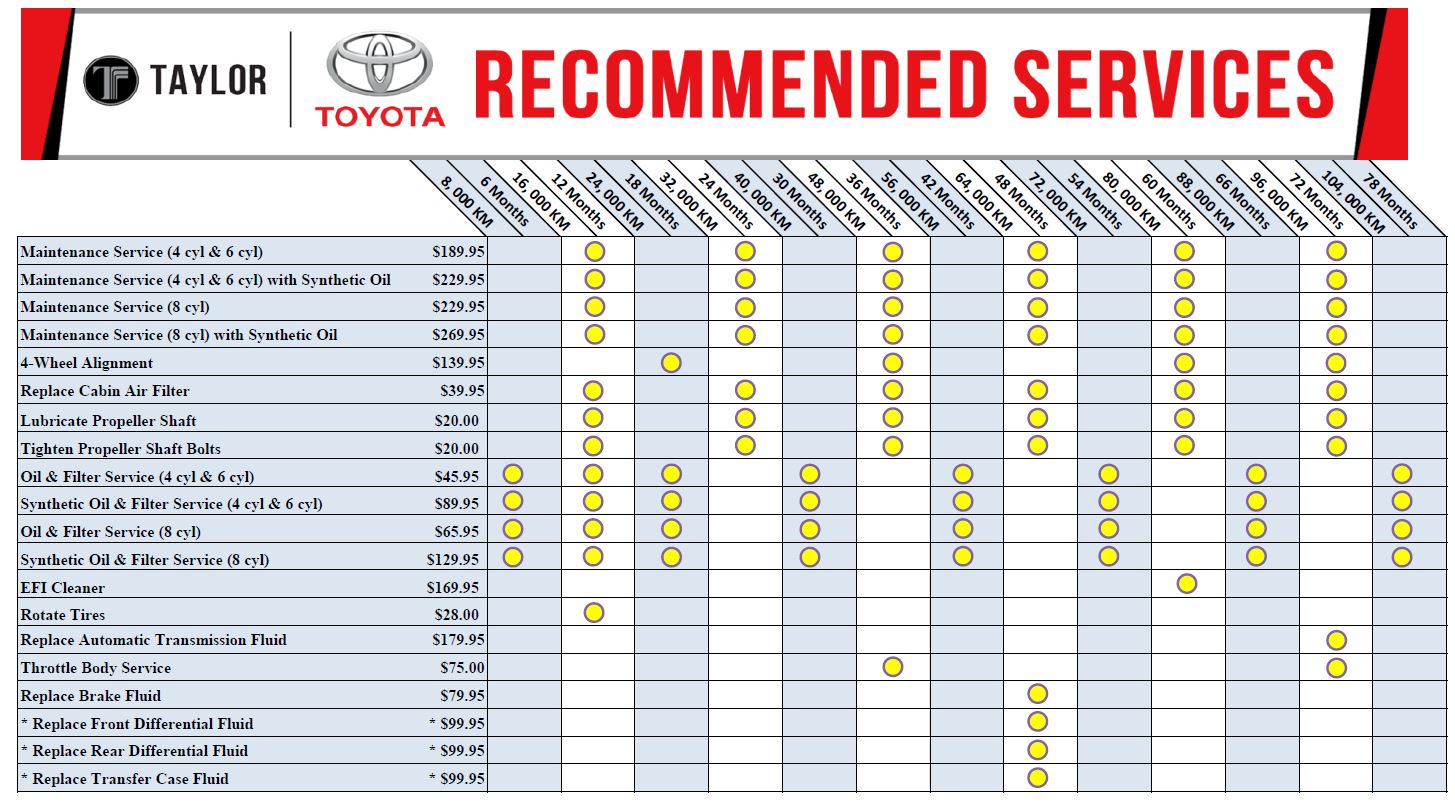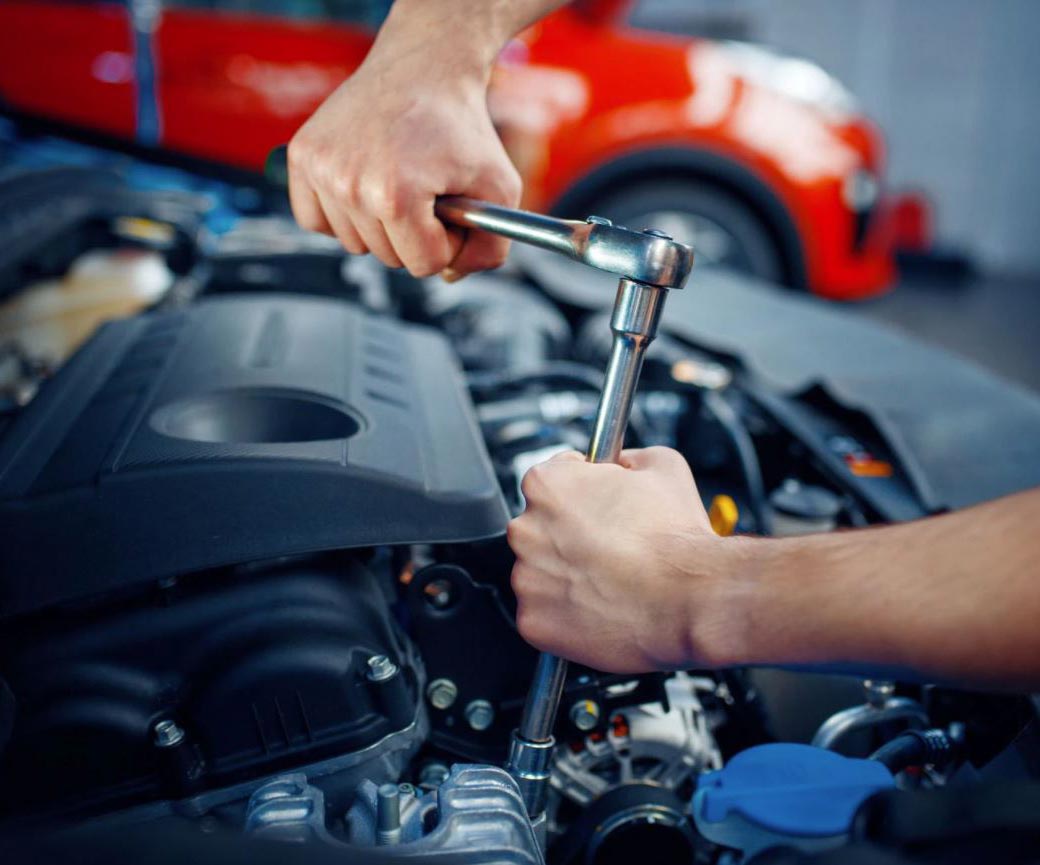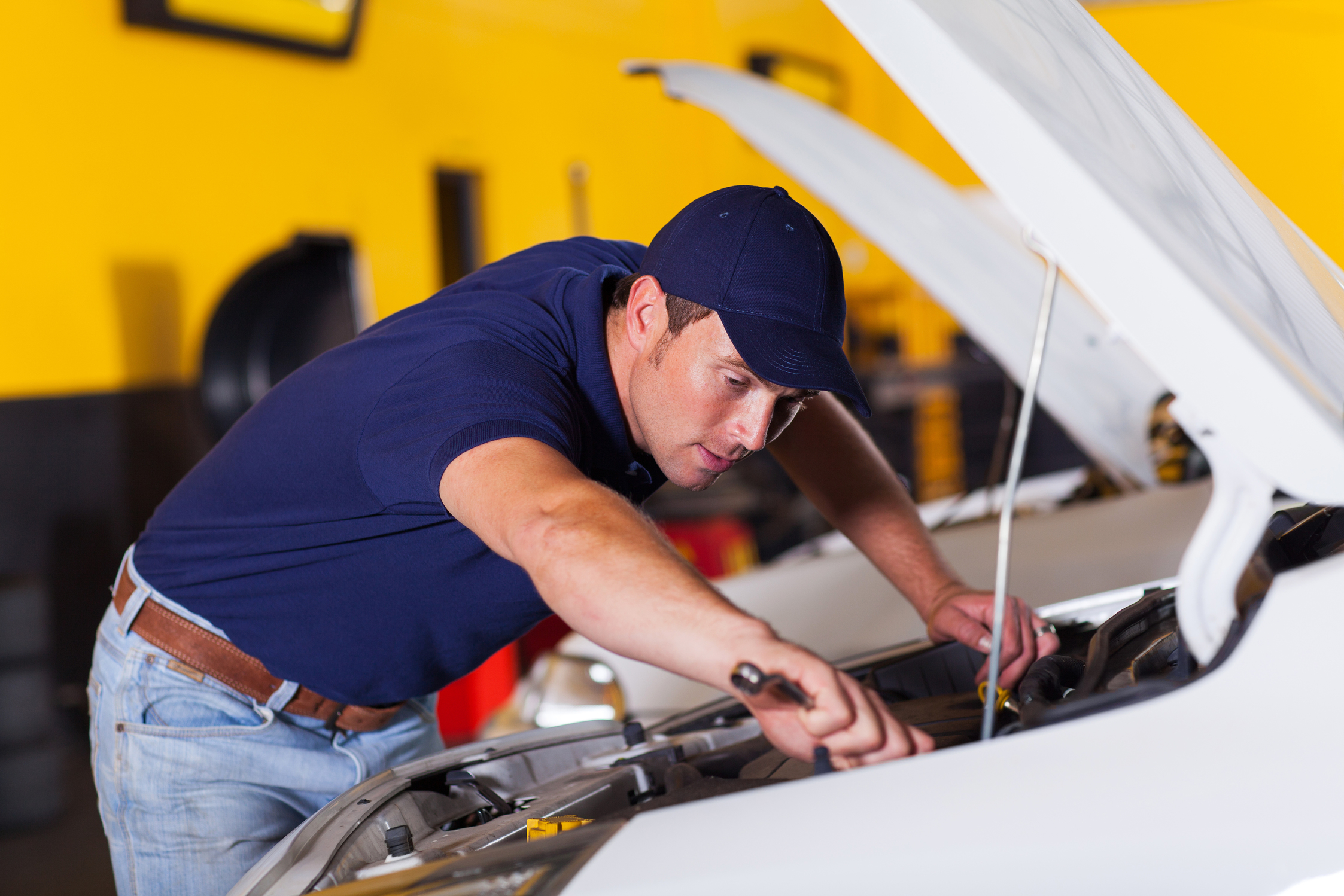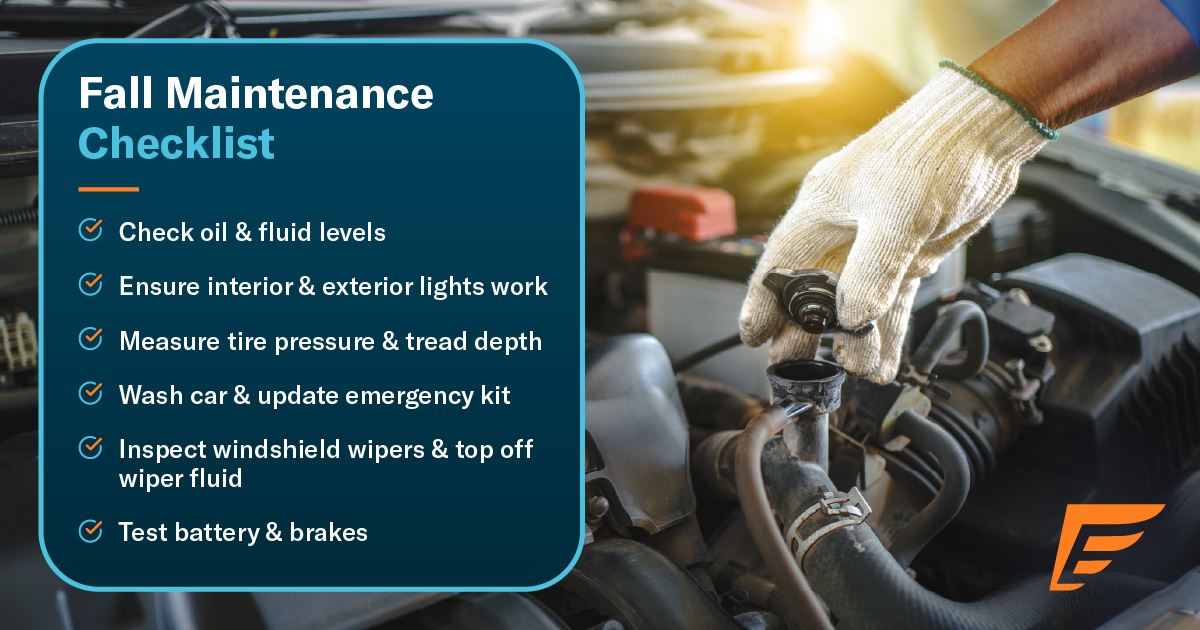Vehicle Repair Services and Recommendations are essential for any car owner, ensuring your vehicle runs smoothly and safely. From routine maintenance to complex repairs, understanding the options available and finding a reliable mechanic is crucial. This guide provides a comprehensive overview of common vehicle repair services, tips for finding trustworthy repair shops, and insights into understanding repair costs.
Whether you’re a seasoned driver or a new car owner, navigating the world of vehicle repair can be daunting. This guide aims to demystify the process, equipping you with the knowledge and resources to make informed decisions about your vehicle’s maintenance and repair needs.
Types of Vehicle Repair Services

Vehicle repair services encompass a wide range of maintenance and repair tasks that ensure your vehicle runs smoothly and safely. These services are essential for maintaining the value of your vehicle and ensuring its longevity. Depending on the type of vehicle, the specific services required will vary.
Common Vehicle Repair Services
- Oil Change:This is one of the most basic and essential services for all vehicles. It involves replacing the old engine oil with fresh oil, which helps to lubricate the engine and prevent wear and tear. Oil changes are typically recommended every 3,000-5,000 miles, depending on the type of oil and driving conditions.
Finding the right vehicle repair service can be a challenge, especially when considering factors like cost, quality, and convenience. While many factors go into choosing the best option, it’s important to also consider your insurance coverage, particularly if you’re a military member with a boat.
Boat Insurance Quote USAA: A Guide for Military Members provides valuable insights into securing the right coverage for your watercraft. Understanding your insurance options will help you make informed decisions about repairs and ensure you have the necessary protection for your assets.
- Tire Rotation:Rotating tires helps to ensure even wear and tear across all four tires. This can extend the life of your tires and improve fuel efficiency. Tire rotations are typically recommended every 5,000-7,500 miles.
- Brake Repair:Brake systems are critical for safe driving, and regular maintenance is essential. This can include replacing brake pads, rotors, calipers, and other components as needed. Brake repair services are typically recommended every 25,000-30,000 miles.
- Engine Tune-Up:An engine tune-up involves inspecting and adjusting various components of the engine, such as spark plugs, air filters, and fuel injectors. This can improve engine performance, fuel efficiency, and emissions. Engine tune-ups are typically recommended every 30,000-50,000 miles.
- Air Conditioning Service:Regular air conditioning service ensures proper cooling and prevents leaks in the system. This can involve recharging the refrigerant, cleaning the condenser, and inspecting the system for leaks. Air conditioning services are typically recommended every 2-3 years.
Vehicle Type Specific Services, Vehicle Repair Services and Recommendations
The following table Artikels some common vehicle repair services categorized by vehicle type:
| Service Type | Vehicle Type | Description | Typical Cost |
|---|---|---|---|
| Oil Change | Car, Truck, Motorcycle | Replacing old engine oil with fresh oil to lubricate the engine. | $30-$100 |
| Tire Rotation | Car, Truck, Motorcycle | Rotating tires to ensure even wear and tear. | $20-$50 |
| Brake Repair | Car, Truck, Motorcycle | Replacing brake pads, rotors, calipers, and other components as needed. | $100-$500 |
| Engine Tune-Up | Car, Truck | Inspecting and adjusting engine components to improve performance. | $200-$500 |
| Transmission Service | Car, Truck | Replacing transmission fluid and filter to maintain smooth shifting. | $200-$500 |
| Clutch Replacement | Motorcycle | Replacing the clutch to ensure smooth gear changes. | $300-$800 |
| Chain Cleaning and Lubrication | Motorcycle | Cleaning and lubricating the chain to prevent wear and tear. | $50-$100 |
Finding Reliable Repair Shops: Vehicle Repair Services And Recommendations
Finding a trustworthy and reputable vehicle repair shop is crucial for ensuring your vehicle’s safety, performance, and longevity. A well-chosen repair shop can save you time, money, and frustration in the long run.
Finding the right vehicle repair service can be a challenge, especially when faced with unexpected damage. While you’re researching repair options, it’s also wise to consider the potential impact on your home insurance premiums. Rhode Island Home Insurance Quotes: A Guide for Homeowners can help you understand how different coverage options might affect your costs, especially if you’re planning to make significant repairs to your vehicle.
Evaluating Repair Shops
Customer reviews, online ratings, and certifications are valuable tools for assessing the trustworthiness and reputation of repair shops. Online platforms like Yelp, Google Reviews, and automotive forums allow customers to share their experiences, providing insights into a shop’s reliability, quality of work, and customer service.
Positive reviews and high ratings generally indicate a reputable shop, while negative reviews can raise red flags.Certifications and accreditations, such as those from the National Institute for Automotive Service Excellence (ASE), demonstrate a shop’s commitment to quality and adherence to industry standards.
ASE-certified technicians have undergone rigorous training and testing, ensuring they possess the necessary knowledge and skills to diagnose and repair vehicles.
Navigating the world of vehicle repair services can be daunting, with a wide range of options and varying quality. Finding the right mechanic and understanding the repair process can feel overwhelming. However, ensuring you have the right insurance coverage can provide peace of mind.
To learn more about getting a comprehensive USAA insurance quote, check out this guide: Get a USAA Insurance Quote: A Comprehensive Guide. Once you have the right coverage, you can confidently focus on finding the best vehicle repair services and recommendations to keep your car running smoothly.
Factors to Consider
Several factors should be considered when choosing a repair shop:
- Location:Convenience is a significant factor. Consider the proximity of the shop to your home or workplace, ensuring easy access for drop-off and pick-up.
- Specialization:Some shops specialize in specific vehicle makes or models, while others focus on particular types of repairs, such as engine work or body repairs. Choosing a shop specializing in your vehicle’s make or the type of repair needed can ensure expertise and familiarity with your vehicle.
- Warranty Policies:Inquire about the shop’s warranty policies for parts and labor. Reputable shops typically offer warranties for their work, providing peace of mind and protection against future problems.
- Customer Service:A positive and responsive customer service experience is essential. Look for shops with friendly and knowledgeable staff who communicate clearly and answer your questions comprehensively.
- Transparency:A trustworthy shop will be transparent about its pricing, repair procedures, and any potential additional costs. Ask for a detailed estimate before authorizing any work, and ensure you understand the charges.
- Reputation:Seek recommendations from friends, family, or colleagues who have had positive experiences with local repair shops. Online reviews and forums can also provide valuable insights into a shop’s reputation.
Understanding Repair Costs

Vehicle repair costs can vary significantly depending on a multitude of factors. Understanding these factors is crucial for budgeting and making informed decisions about your vehicle’s maintenance.
Factors Influencing Repair Costs
Several key factors contribute to the overall cost of vehicle repairs.
- Type of Repair:The complexity and extent of the repair are major determinants of cost. Routine maintenance like oil changes are generally less expensive than major repairs like engine overhauls.
- Parts Availability:The availability of parts, particularly for older or less common vehicles, can impact cost. Rare or discontinued parts may require sourcing from specialized suppliers, leading to higher prices.
- Labor Rates:Labor rates vary depending on the location, experience level of the mechanic, and the type of repair shop. Specialized shops may charge higher rates for specialized services.
- Vehicle Model:The make, model, and year of your vehicle can influence repair costs. Luxury or high-performance vehicles often have more expensive parts and require specialized tools, leading to higher repair bills.
Common Repair Costs
Here are some examples of average repair costs for common vehicle components:
- Engine:Engine repairs can range widely, from minor tune-ups costing a few hundred dollars to major overhauls exceeding several thousand dollars.
- Transmission:Transmission repairs can be costly, with basic repairs starting around $1,000 and complex rebuilds reaching $3,000 or more.
- Brakes:Brake repairs are generally more affordable, with brake pad replacements costing around $100-$300 and rotor replacements costing $200-$500.
- Electrical Systems:Electrical repairs can vary significantly depending on the issue. Minor repairs like replacing a battery can cost around $100, while complex electrical system diagnostics and repairs can cost several hundred dollars.
Average Cost Ranges
The following table provides a general overview of average cost ranges for various repair categories:
| Repair Category | Labor (Average) | Parts (Average) | Total (Average) |
|---|---|---|---|
| Oil Change | $20-$50 | $20-$40 | $40-$90 |
| Brake Pad Replacement | $50-$100 | $50-$150 | $100-$250 |
| Tire Rotation | $10-$20 | $0 | $10-$20 |
| Engine Tune-up | $100-$200 | $50-$100 | $150-$300 |
| Transmission Fluid Change | $50-$100 | $50-$100 | $100-$200 |
Note:These are just average cost ranges, and actual costs can vary depending on the factors mentioned earlier. It’s always best to get multiple quotes from reputable repair shops before committing to a repair.
Preventive Maintenance and Recommendations
Preventive maintenance is the key to extending the lifespan of your vehicle and minimizing unexpected repair costs. By adhering to a regular maintenance schedule, you can catch potential issues early, prevent major breakdowns, and ensure your vehicle runs smoothly for years to come.
Recommended Maintenance Schedules
A regular maintenance schedule varies depending on the type of vehicle and driving conditions. Here’s a general guide:
- Oil Change:Every 3,000-5,000 miles or every 3-6 months, whichever comes first. Modern synthetic oils may allow for longer intervals, but consult your owner’s manual for specific recommendations.
- Tire Rotation:Every 5,000-7,500 miles to ensure even wear and tear on all tires.
- Fluid Checks:Regularly check and top off fluids like coolant, brake fluid, power steering fluid, and windshield washer fluid. Check levels at least once a month or before long trips.
- Air Filter Replacement:Every 12,000-15,000 miles or as needed, depending on driving conditions.
- Spark Plug Replacement:Every 30,000-100,000 miles, depending on the type of spark plugs and engine. Consult your owner’s manual for specific recommendations.
- Timing Belt/Chain Inspection:Every 60,000-100,000 miles or as recommended by the manufacturer. A timing belt failure can cause significant engine damage.
- Brake Pad/Shoe Inspection:Every 12,000-15,000 miles or as needed, depending on wear and tear.
Preventive Maintenance Tasks
Beyond the scheduled services, there are a few essential tasks you can perform to keep your vehicle in top shape:
- Regularly Inspect Tires:Check tire pressure, tread depth, and for any signs of damage or wear. Maintain proper tire pressure as recommended by the manufacturer.
- Clean the Battery Terminals:Corrosion on the battery terminals can hinder starting. Clean them with a wire brush and baking soda solution.
- Check Engine Lights:If the “Check Engine” light illuminates, have the vehicle diagnosed by a mechanic to identify and address the issue. Ignoring a warning light can lead to more serious problems.
- Regularly Inspect Belts and Hoses:Look for cracks, fraying, or leaks in belts and hoses. Replace them as needed to prevent unexpected breakdowns.
Final Review

By understanding the types of vehicle repair services, finding reliable repair shops, and being aware of repair costs, you can take control of your vehicle’s maintenance and ensure it remains in top condition. Remember, preventive maintenance is key to extending your vehicle’s lifespan and minimizing costly repairs down the line.
Armed with this knowledge, you can confidently navigate the world of vehicle repair, ensuring your vehicle stays reliable and safe on the road.
